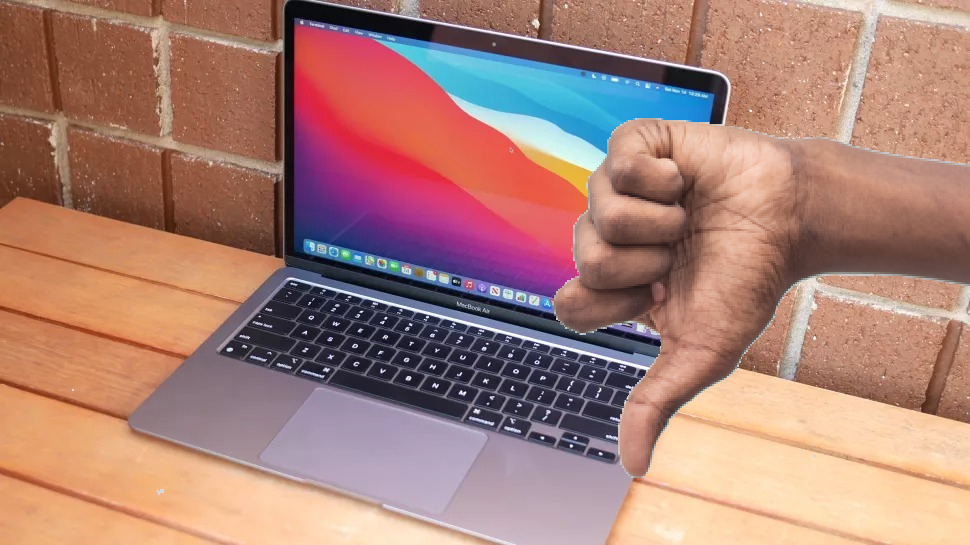
Burn baby burn! I’m here to incinerate your preconceived notions of MacBooks into hot, steaming ash. Apple fans, beware! After reading this, you’ll never be the same, particularly if you’ve been indoctrinated to believe that Apple is the GOAT for pro-level video editing.
Truth be told, I thought so, too. And boy was I wrong!
After all, Final Cut Pro is beloved among my tech YouTuber friends who edit their own videos, and of course, the Apple ecosystem makes uploads, file transfers, and other iDevice-to-iDevice connections seamless and smooth as butter. On top of that, chips like the M2 Pro and M2 Max inside the 14-inch and 16-inch MacBook Pros are beastly, delivering ultra-fast video transcoding scores and Roadrunner-esque graphics processing that smokes most of its similarly specced competitors.
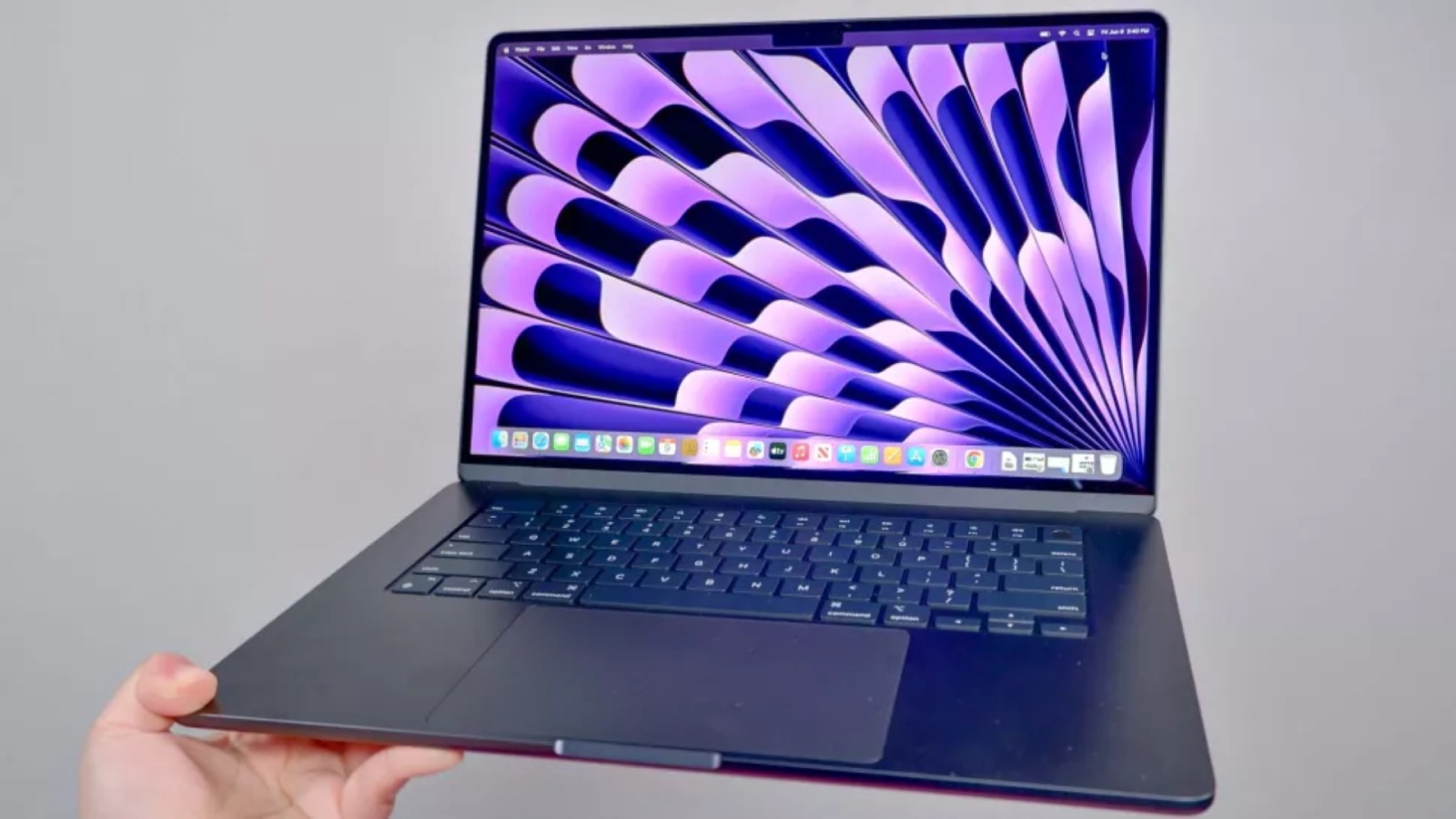
But MacBooks are severely lacking in one key area that is important to professional video editors: DCI-P3 color gamut coverage (a color space that’s considered ‘the standard’ in the film industry). Sure, you can always connect your MacBook to one of the best monitors with top-of-the-line display specs. But if you prefer to be more mobile — or you like to edit while you’re on the go — there are better options that far surpass MacBooks’ DCI-P3 prowess.
Why I’d no longer recommend MacBooks for pro-level video editors
If you’re a casual editor, perhaps you slice and dice videos for your YouTube channel or TikTok, you may not care about your MacBook’s DCI-P3 color coverage. However, if you work with videos professionally, a display with a minimum 95% DCI-P3 color space is likely important to you. Well, I’m sorry to say, but there’s not a single MacBook out there that will meet your needs.
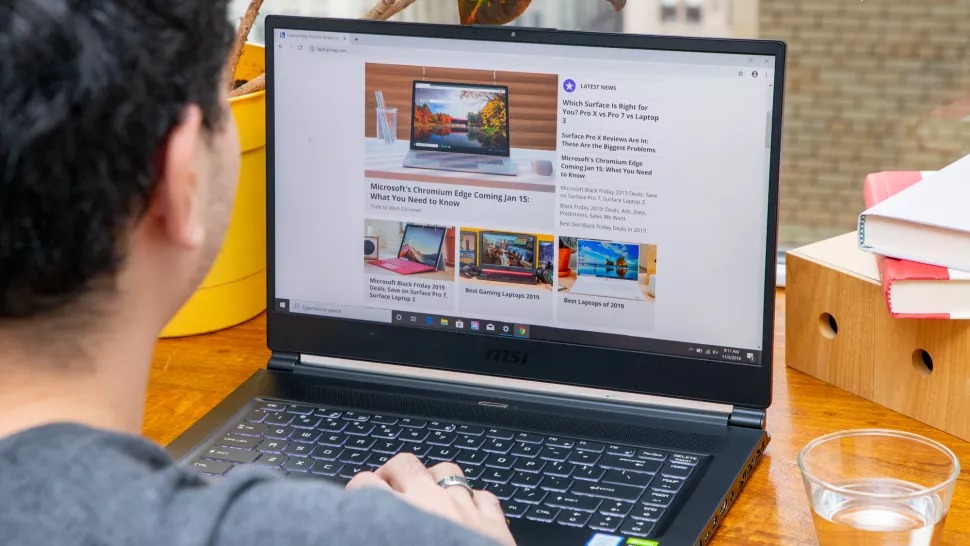
How did I find out that MacBooks are mid when it comes to display performance? Well, I was minding my own business and perusing through Laptop Mag’s massive spreadsheet of laptop DCI-P3 scores that are organized from best to worst (Yes, leave me alone; I’m a curious nerd). The GOAT on this list is the MSI WS65 9TM, a workstation that launched in 2020 and was praised for having a “sumptuous” 4K display, zippy performance and graphics, solid battery life, and more. It has the best DCI-P3 score of all time — covering a whopping 178% of the color space. Whoa!
The second-best laptop is the Acer Swift Go 14, which launched this year. There are a few reasons why we called it “the MacBook Air killer,” and one big one is that It covers 176% of the DCI-P3 color space.
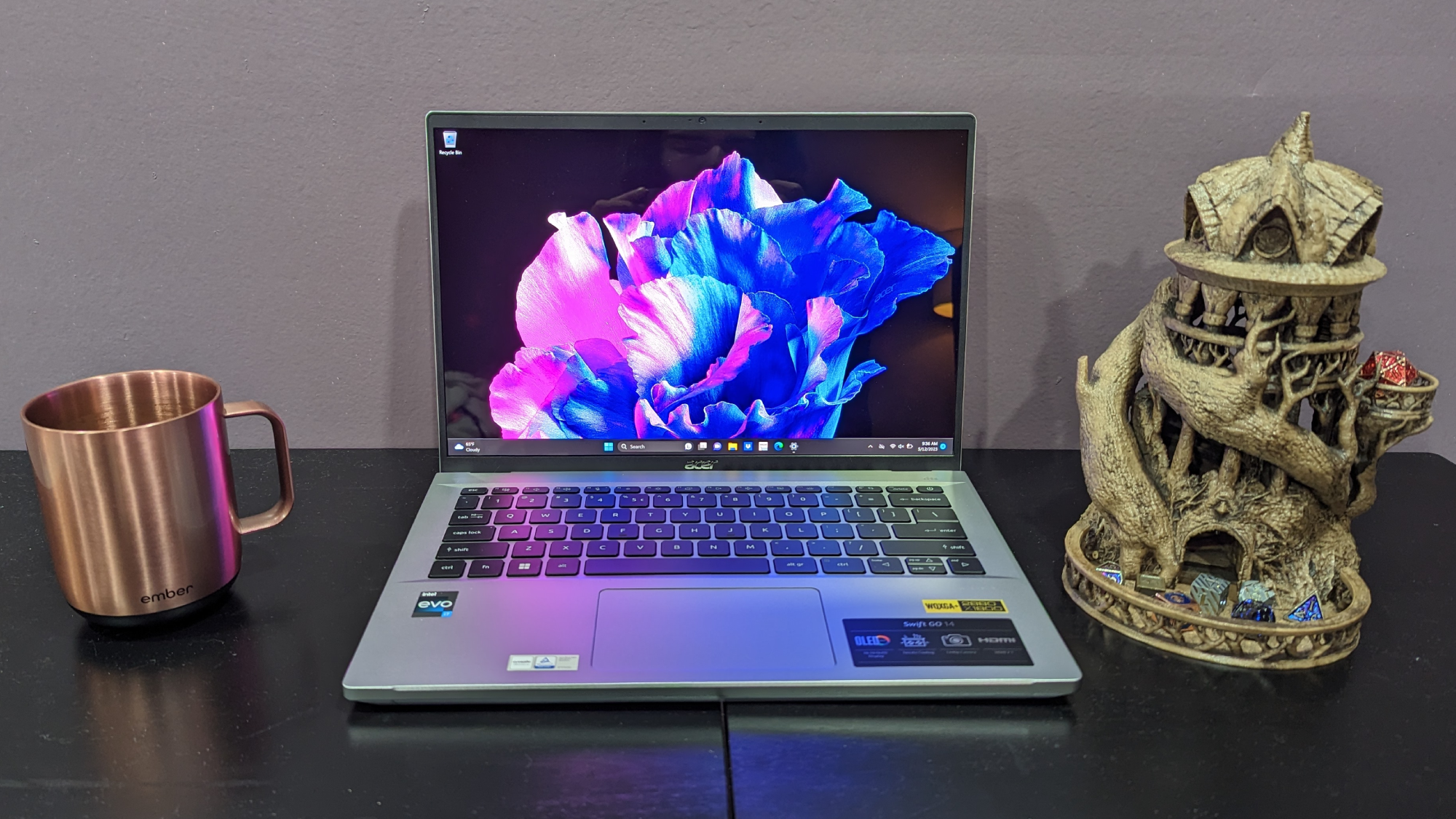
At this point, I thought I’d surely find a MacBook in the top 10, right? I frantically searched for an Apple laptop, but to my surprise, I didn’t see one. In fact, I couldn’t even find a MacBook in the top 50 — or even the top 100!
I had to surpass nearly 120 laptops (118 to be exact) to finally get to a MacBook, and it was the 16-inch, M2 Max-packed MacBook Pro released last year. It only covers 84% of the DCI-P3 color gamut, but video editors need at least 95%. In other words, even the MacBook with the highest DCI-P3 score isn’t enough to meet a professional video editor’s needs.
I don’t know about you, but I had no idea that 84% is the best you can get out of a MacBook today. Yikes!
Most Apple laptops deliver great color accuracy, but avoid these two
Having a color-accurate display is important for many video editors, too, and a display with a Delta-E score of 0.2 or lower is best. Fortunately, MacBooks are much more satisfactory when it comes to color accuracy. We tested all the recent MacBooks, so take a look at the chart below of the Apple laptops that deliver the best color accuracy, from best to worst.
According to the chart above, the most color-accurate MacBook you can get is the 16-inch MacBook Pro with the M2 Pro chip. It has an incredible Delta-E score of 0.05. The worst, however, are the 14-inch MacBook Pro (M2 Max) and the 13-inch MacBook Pro (M2), which offer Delta-E scores of 0.30 and 0.31, respectively. Oof — not so color accurate!
Which laptops are best for video editing?
At this point, you may be wondering, “So if MacBooks aren’t the best choice for video editing, what do you recommend?” That’s a great question — and I’ll look into that for you right now.
Although the MSI WS65 9TM laptop has the highest DCI-P3 score we’ve ever tested, it’s three years old and its hardware is obsolete. The next best laptop on the list that meets all my criteria — relatively au courant, discrete graphics, and ultra-high DCI-P3 score — is the Dell XPS 15 (2023). It covers 138% of the DCI-P3 color gamut. The unit we tested comes with an Intel Core i7-13700H CPU, an Nvidia GeForce RTX 4070 GPU, 32GB of RAM, a 1TB SSD, and a 15.6-inch, 3,456 x 2160 OLED touch display.
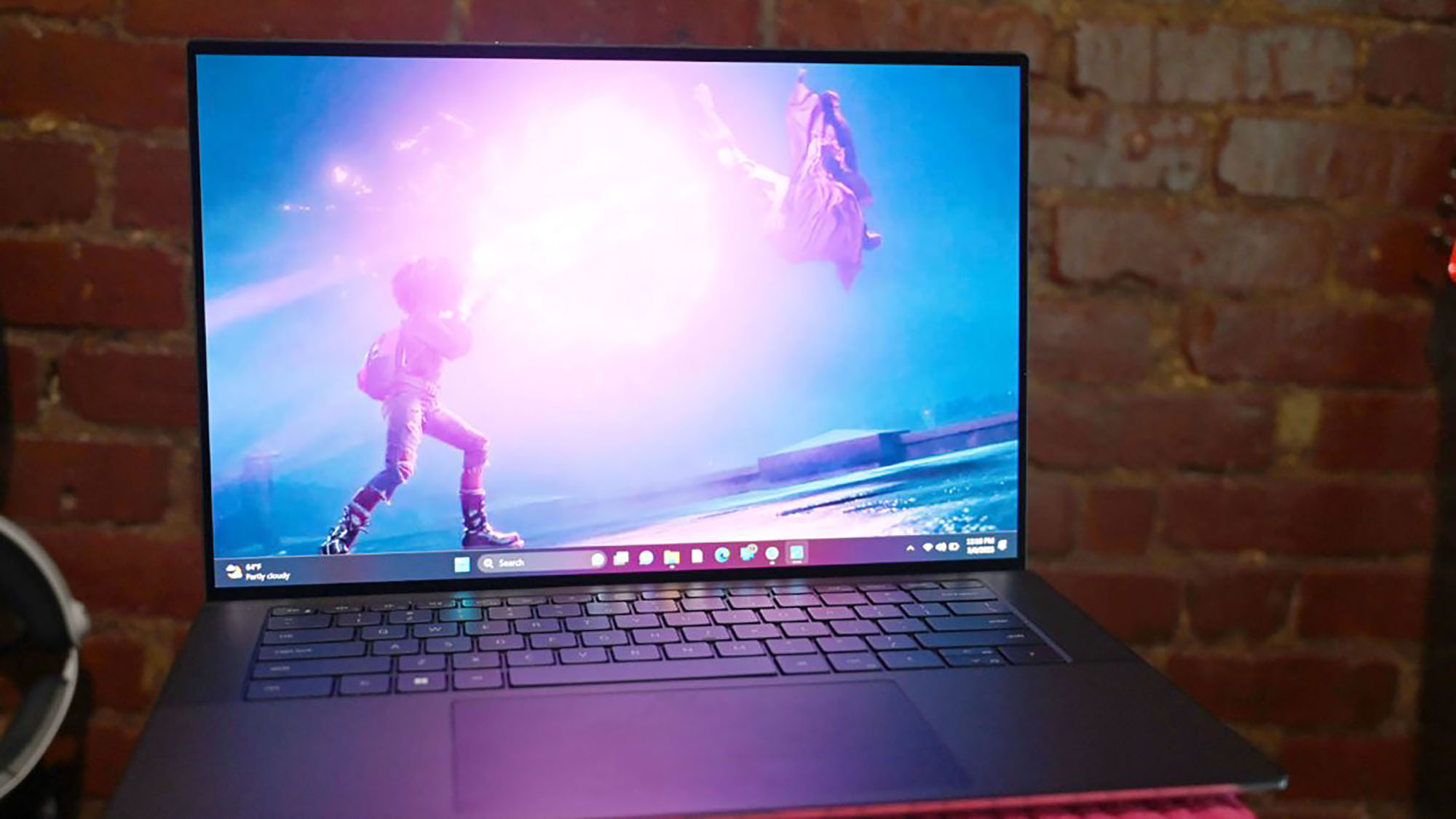
The next best choice has internal components that are a generation behind, but it has a dazzling DCI-P3 score of 118%. Say hello to the Razer Blade 17, which impressed us with its comfortable keyboard, great speakers, strong graphics performance and solid battery life (for a gaming laptop). The configuration we tested sports an Intel Core i7-12800H processor, an Nvidia GeForce RTX 3080 Ti GPU, 32GB of RAM, a 1TB SSD, and a 17-inch, 1080p display with a 360Hz refresh rate. This laptop is six pounds, however, so it doesn’t make the best travel companion.
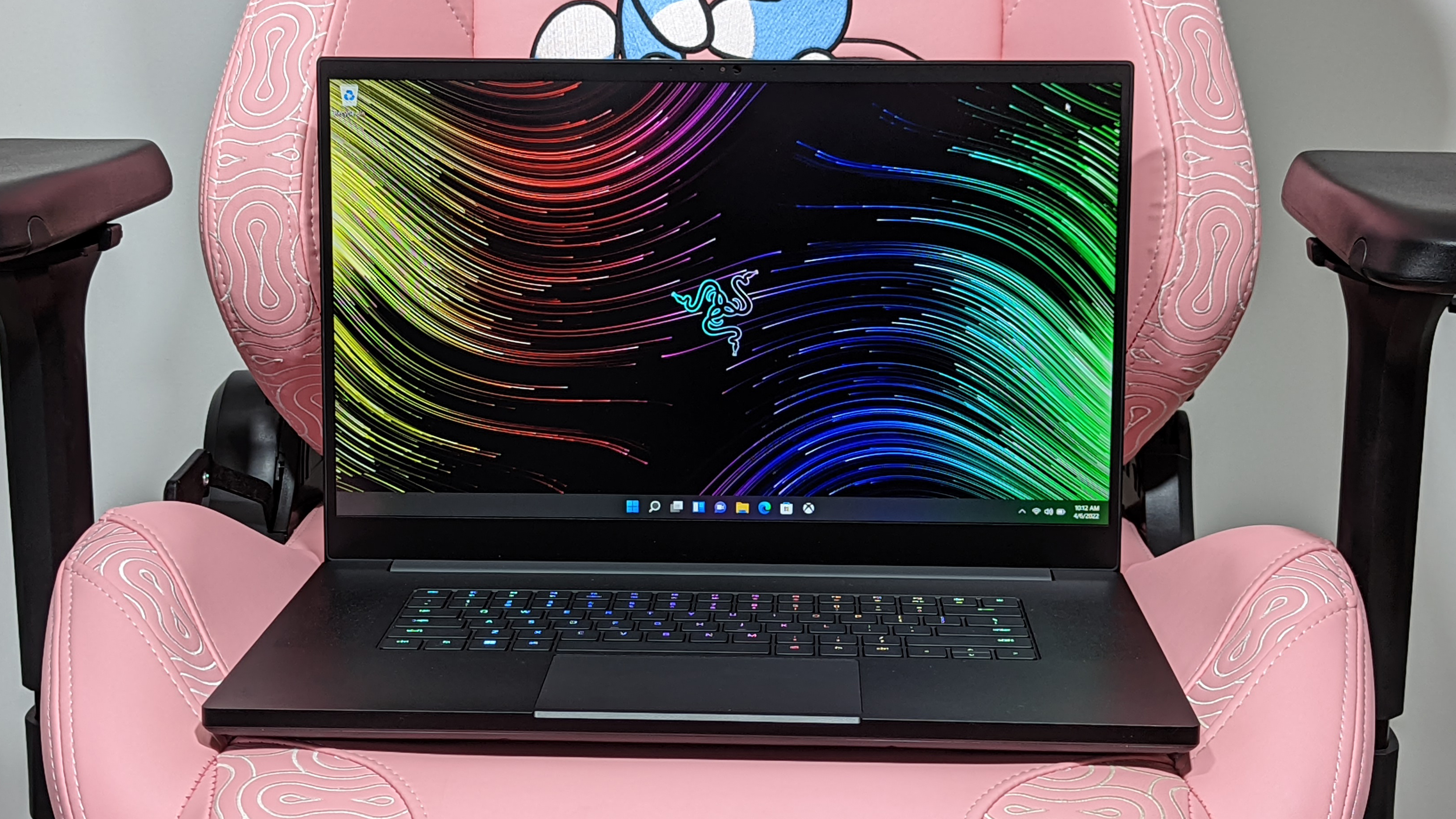
My third and final recommendation is the MSI Raider GE78 HX 13V — whew, that name is a mouthful. We gushed over its excellent speakers, powerful processor performance, beastly graphics, and of course, its colorful display (it has a DCI-P3 score of 115%). The unit we reviewed is configured with an Intel Core i9-13950HX CPU, an Nvidia GeForce RTX 4080 GPU, 32GB of RAM, a 2TB SSD, and a 17-inch, 2560 x 1600-pixel display with a refresh rate of 240Hz.
If you're looking for something budget friendly (all the aforementioned laptops are over $2,000), consider the LG Gram 17, which has a DCI-P3 score that matches the MSI Raider GE78 HX 13V. It's a gloriously lightweight 17-inch laptop that delivers a 12-hour runtime, and packs an Intel Core i7-1260P CPU, an Nvidia GeForce RTX 3050 GPU, 16GB of RAM, a 1TB SSD, and a 17-inch, 2560 x 1600-pixel display.
TLDR: The best laptops for video editing:
1. Dell XPS 15 (2023), which you can get Best Buy for $1,999.
2. Razer Blade 17, which you can get at Razer for $2,899
3. MSI Raider GE78 HX 13V, which you can get at Amazon for $2,599
4. LG Gram 17, which you can get at Amazon for $1,199.
Bottom line
It’s not that you shouldn’t get a MacBook for video editing at all. It’s just that there are more suitable options on the market, particularly if you’re a professional video editor and wide DCI-P3 color gamut coverage is important for you.
If you’re a casual video and photo editor, and meeting a color gamut standard isn’t important to you, feel free to snatch up any MacBook you want. It may not deliver 100% DCI-P3 color gamut, but it’s guaranteed to deliver breakneck graphics performance, mind-blowing power efficiency, and smooth-sailing software that facilitates all of your video-editing needs.







